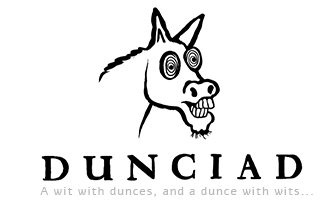
I was in a properly foul mood yesterday – blame my ongoing PC problems – so I was in no spirits to be drawing cartoons based around clever conceits. Instead, I drew a picture of Donald Trump’s arsehole, complete with a ridiculous version of his already ridiculous signature.
Perhaps that makes it sound less thought out than it was. I’d actually been looking/admiring/feeling humbled by some quite brilliant cartoons drawn by Emad Hajjaj, a Palestinian-Jordanian editorial cartoonist, which Martin Rowson had retweeted. The cartoons were variations on the coronavirus theme, with the now distinctive shape used in a variety of ways.
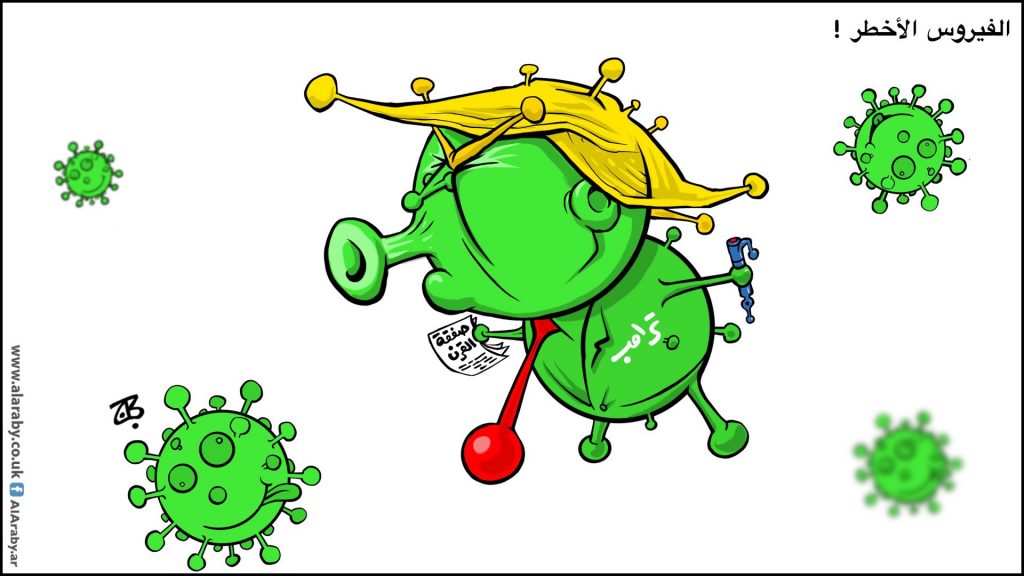
So, naturally, I thought I’d have a try and, even more naturally, the small star shape became what I believe is euphemistically called the “Rusty Sheriff’s Badge”.
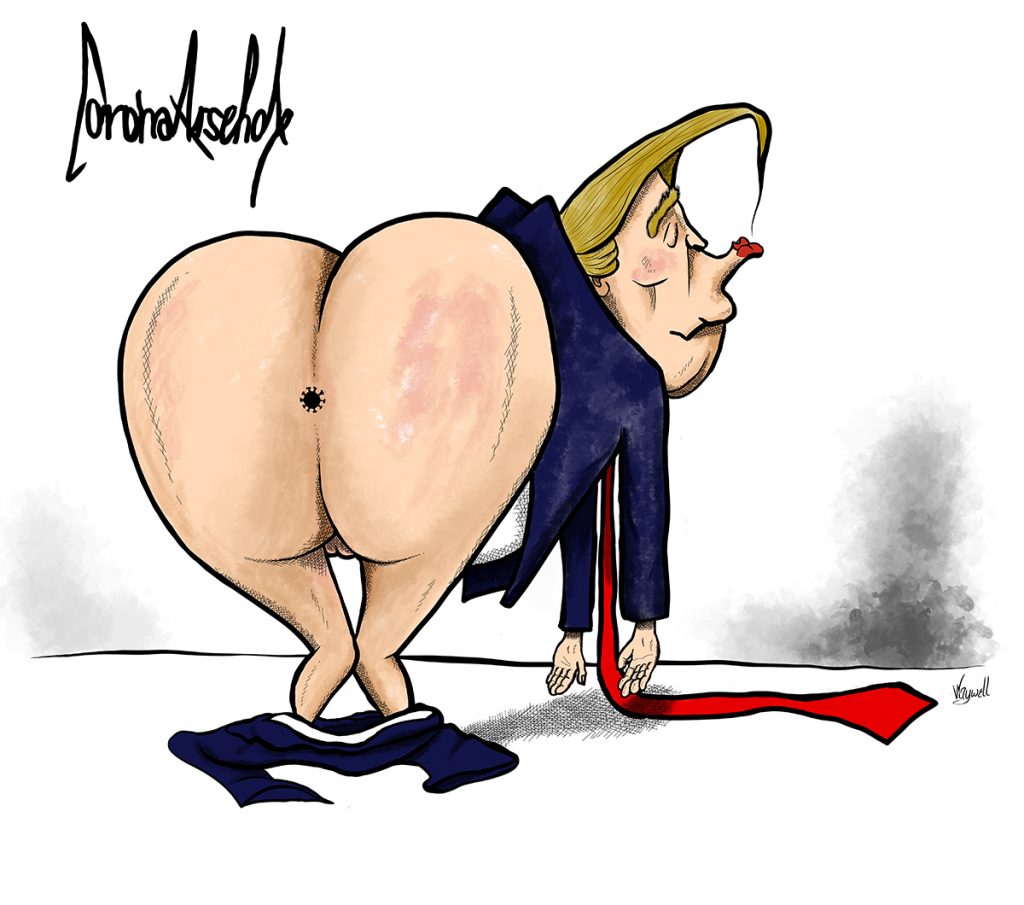
Yes, I know it wasn’t clever and I’m not entirely proud of what I achieved, though I think the cartoon was pretty strong. It also led me to wonder: what is it about the anus that’s so inherently funny? Why do I like cartoons that make such gratuitous use of the most fundamental (pun intend) part of the body?
One of my favourites is the piece drawn by the peerless Ralph Steadman, that adorns the cover of my copy of HST’s Fear and Loathing on the Campaign Trail.
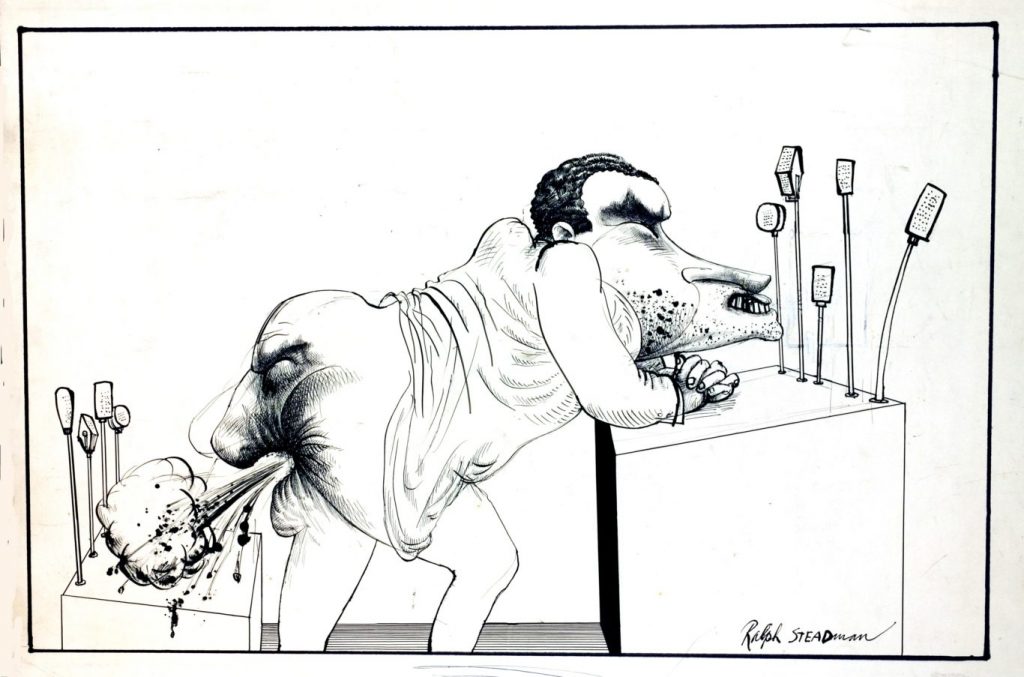
It’s in the tradition of Gillray, who once drew Great Britain “shitting” ships in the direction of France, but also, I suppose, that tradition that sees politicians reduced to their most flatulent and offensive. I’ve also been rewatching The Thick of It lately and I’m sure the swearyness really belongs to the same tradition.
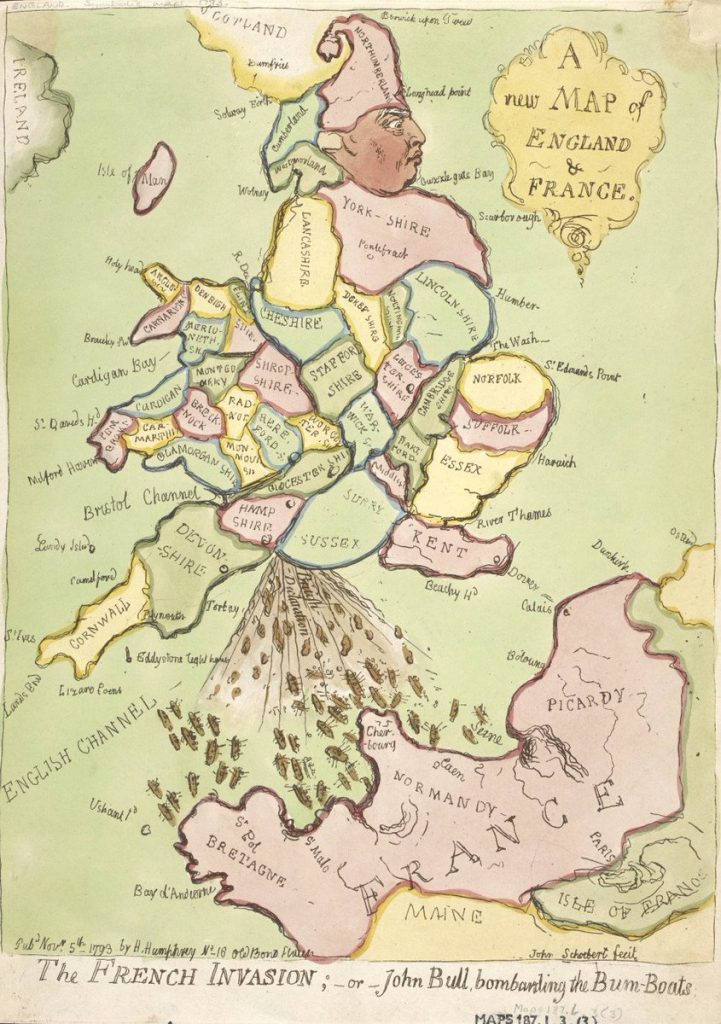
To most people, the style is probably the most childish of all but I suspect it’s quite the opposite. There’s always been this earthy obsession throughout literature. Chaucer is full of vulgar bits but he was hardly the first. We now think of satire as it divides into two schools. There’s Horatian, which tends to be clever, witty, and intellectually rather cool. There are cartoonists who belong to that tradition and they’re equally great. Peter Brookes draws really clever ideas, executed perfectly, but they might not hit you on that gut level where a different kind of deep satisfaction is found. For that, you probably need some Juvenalian satire, which is darker, malformed, rotten and rooted in the ugliness of the body. Both found favour in the Englightenment but examples of the latter are probably the more memorable. It’s deeply rational once you rid yourself of the illusions of religion that would have you believe the human form (even the nasty bits which the Bible doesn’t really explain) is created by God. As a biological organism, the body is whatever the body is. To put it crudely: the eyes or mouth are no more privileged than the arsehole. It led Swift to produce some of those lovely nasty work, such as poor Corinna, the “pride of Drury-Lane”, for whom Swift provides a running commentary as she strips off to bed.
Untwists a wire; and from her gums
A set of teeth completely comes.
Pulls out the rags contrived to prop
Her flabby dugs and down they drop.
Proceeding on, the lovely goddess
Unlaces next her steel-ribbed bodice;
Which by the operator’s skill,
Press down the lumps, the hollows fill,
Up goes her hand, and off she slips
The bolsters that supply her hips.
With gentlest touch, she next explores
Her shankers, issues, running sores,
Effects of many a sad disaster;
What this is, I suppose, is a world devoid of hypocrisy, which is very modern and very compelling. Drawing Trump’s arsehole isn’t just about ridiculing him but reminding people that, despite his protestations about his abilities, his wealth, his success, he’s still just another naked ape.
That, I think, explains why I tend to enjoy scatological cartoons and still cherish the cartoonists who get the closest to the ideal, such as Scarfe, at his best in the 1970s, when he suited the black and white style, full of dark orifices and raging boners.
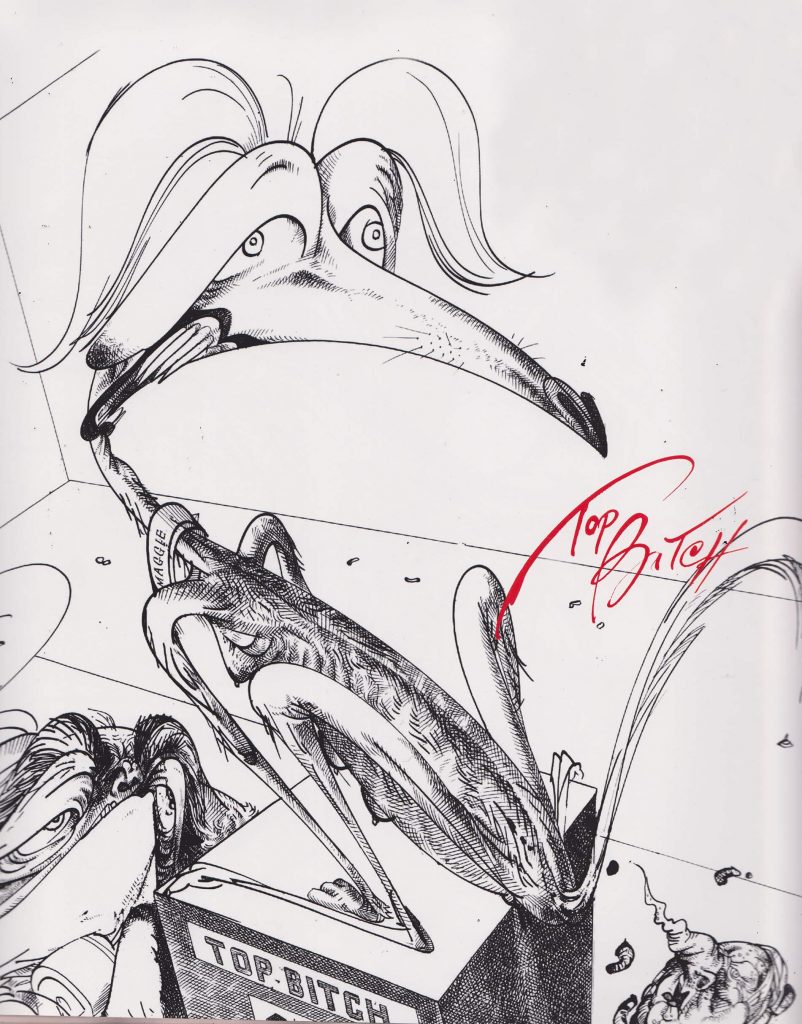
Colour takes some of that away, or, at least, Scarfe’s never quite found the same darkness. Steadman, of course, has maintained the darkness, as has Rowson, whose work feels like peering into a bucket of bodily juices given a week to marinate. The result isn’t just psychological but philosophical.

Anybody who knows me (especially those who have already grown bored of me) will know that the single world of literature that has influenced me the most is Conrad’s Heart of Darkness (along, probably, with Rowson’s five-arsed pig), which essentially presents us with two visions of human life: the ugly truth offered by Kurtz or the illusion that Marlow eventually chooses to save Kurtz’s intended (and, essentially, civilisation) from “the horror, the horror”. The best cartoons do the same, I think, presenting variations on the theme: the ambitions of politicians against the gross reality of their existence. I suppose it’s why I always find my mind going back to the time of Swift and Pope (hence the choice of this blog’s title). It’s why I also think Byron the truest of the Romantic poets. He wasn’t ashamed to admit the virtue of a good bowel movement. Keats is too often presented as the aesthete, floating above life, when really he was a tiny guy obsessed with big tits. And, yes, sometimes it is as crude as that. You just have to get rid of our faux Victorian morality, our supernatural belief in Heaven and Hell, and simply accept the cosmos for what it is, tits, boners, arseholes, and all…
